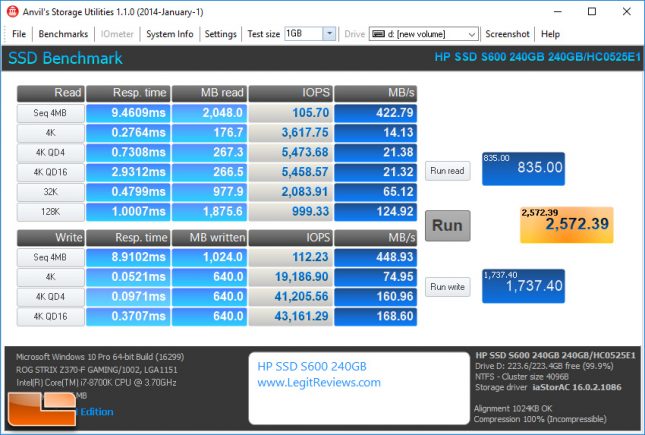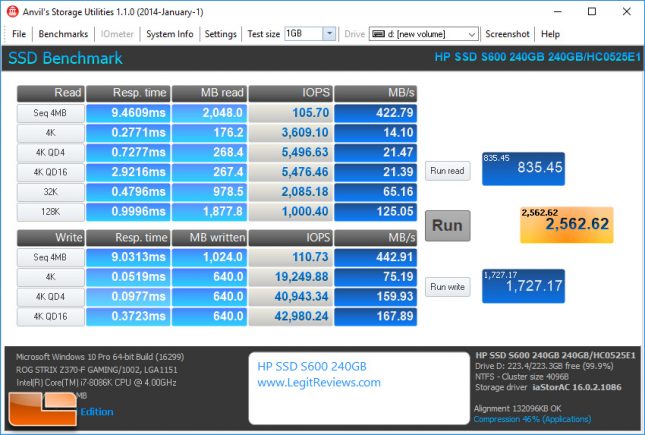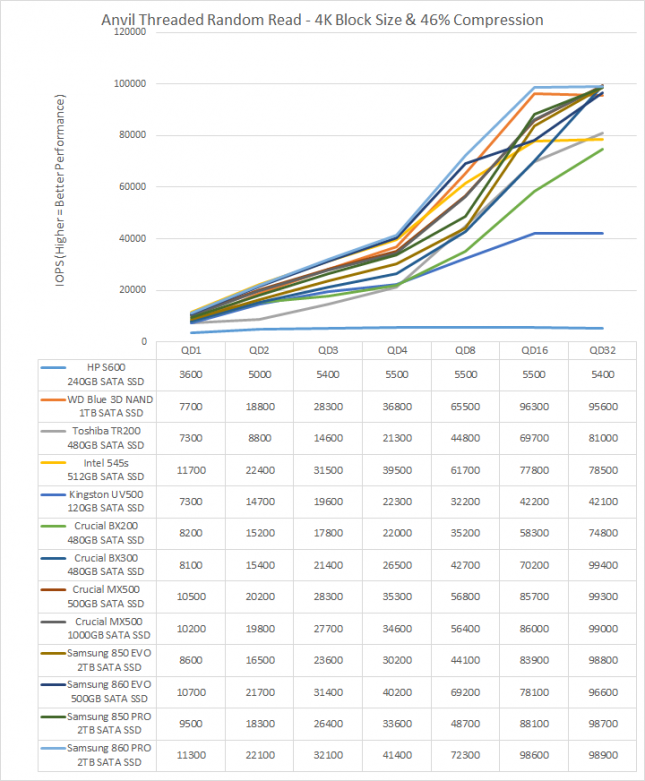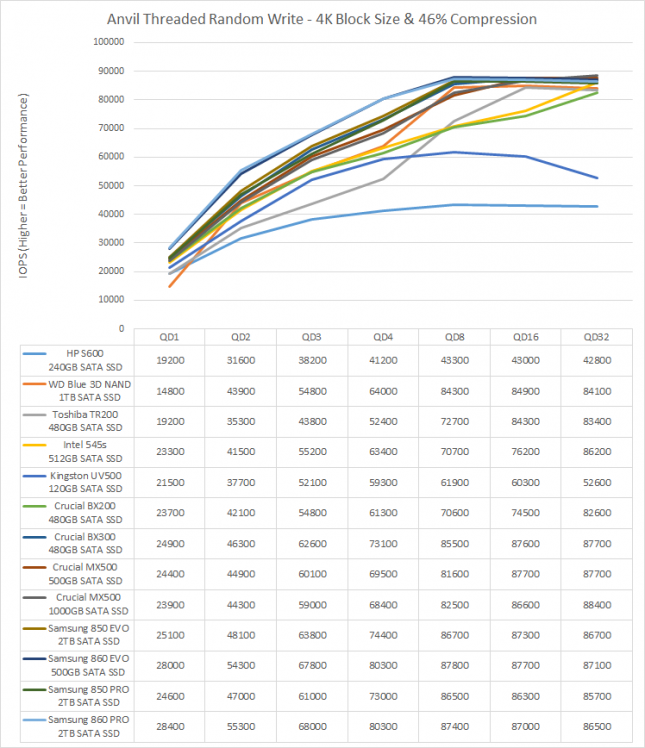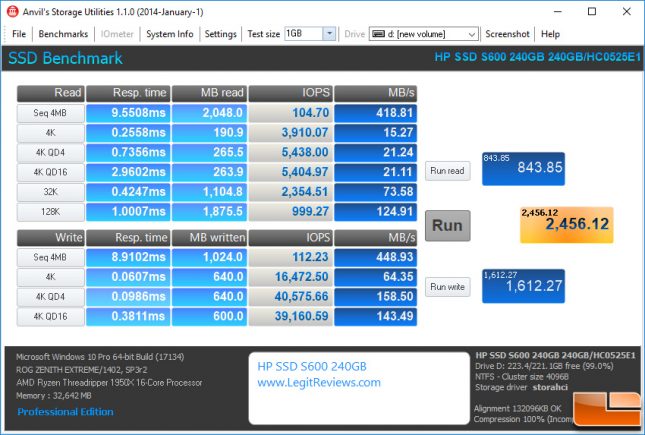HP S600 2.5″ 240GB SATA SSD Review
Anvil Storage Utilities
Anvil Storage Utilities 1.1.0
Along with the move to a new platform, we decided to make a change in one of the benchmarks. There’s a relatively new benchmark called Anvil Storage Utilities that is in beta but close to production. It’s a very powerful tool that measures performance through a variety of tests which can be customized. Since some of the tests more or less duplicate what we get from other benchmarks we use already, we decided to use the IOPS (Input/Output Operations Per Second) testing on 4kb file sizes at a queue depth of 1, 2, 3, 4, 8, 16, and 32. IOPS performance is something SSD makers tout quite a bit but we generally don’t do a lot of IOPS testing because frankly a lot of users can’t relate to IOPS metrics as well and it tends to be more meaningful to the enterprise/server crowd. Still, it is another performance indicator with relevance and while some drives post good MB/s numbers, their IOPS scores aren’t always commensurate which this test will prove out.
Anvil SSD Benchmark with 100% Compression (incompressible data):
Benchmark Results: The Anvil SSD Benchmark showed that with 100% compression (incompressible data) the HP SSD S600 240GB drive had an overall score of 2,572.39 points. The drive topped out at 422.79 MB/s read and 448.93 MB/s write on the sequential performance test with 4MB file sizes. Random 4K QD16 performance hit 5,500k IOPS on read and 43,200k IOPS write.
Benchmark Results: With the compression at 46% to help mimic real world applications better we found the overall score was slightly lower at 2,562.62 points.
When we compare the Random 4K Read performance on the HP S600 to other drives we found that it has the lowest random read performance of any SATA SSD that we have recently tested by a long shot.
The 4K Random write performance starts out at 19,200 IOPS at QD1 tops out at around 43,000 IOPS by QD8 in our testing. The QD1 performance isn’t the worst we’ve seen, but at QD2 and beyond the S600 240GB lags behind all the others we benchmarked.
These performance numbers were looking so ‘off’ that we tried the drive on a few other systems and the results were the same. Here is a look at the Anvil performance on the ASUS ROG Zenith Extreme motherboard with the AMD Ryzen Threadripper 1950X processor with Windows 10 Pro 64-bit v1803. Our overall score went down to 2,456.12 points and the Random 4K read performance was again under 5,500 IOPS, which is roughly a quarter of the drives rated speed.

